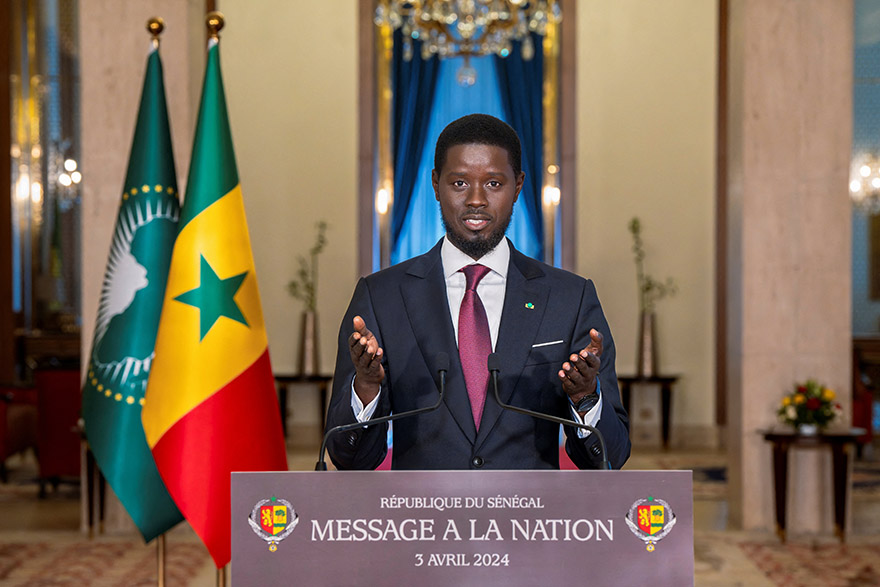Researchers: The election of Faye as Senegal’s president – a strong message to disillusioned West Africans

Senegal's newly elected president Bassirou Diomaye Faye addresses the nation ahead of Senegal's independence day at the presidential palace in Dakar, Senegal, April 3, 2024. Photo: Reuters/Abdou Karim Ndoye
In early 2024, Senegal’s democracy appeared to be at the brink of collapse. However, after an intervention by the country’s constitutional court and engagement from civil society the political system of multiple parties and free elections survived. On 24 April, Bassirou Diomaye Faye, the young leader of the previously banned party PASTEF (Patriots of Senegal) was sworn in as president. In this video, NAI researchers Papa Sow and Babatunde Fagbayibo discuss the importance of Senegal’s recent political transition in a region where military coups have surged in recent years.
On 3 February 2024, Senegal’s then president Macky Sall announced the indefinite postponement of the presidential elections scheduled to take place the same month. Many Senegalese feared that the postponement threatened the country’s deep-rooted democracy and would fuel instability. Members of Senegal’s political opposition labelled the president’s intervention a constitutional coup. However, on 16 February they country’s Constitutional Council cancelled the government’s postponement of the elections, ruling that it was unconstitutional. Instead, elections were held on 24 March. The 44-year old Bassirou Diomaye Faye of the party PASTEF won 54,28 percent of the votes.
